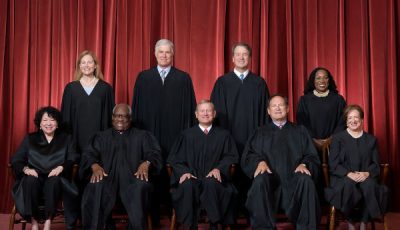9th Circuit Upholds Award of Attorney’s Fees in Strike 3 Case
 SEATTLE, Wash. – In a decision issued last Thursday, the U.S. Court of Appeals for the Ninth Circuit upheld the decision by a lower court requiring Strike 3 Holdings, the company behind such popular adult brands as Tushy, Blacked and Vixen, to pay the attorney’s fees incurred by a defendant against whom Strike 3 voluntarily dismissed its copyright claims.
SEATTLE, Wash. – In a decision issued last Thursday, the U.S. Court of Appeals for the Ninth Circuit upheld the decision by a lower court requiring Strike 3 Holdings, the company behind such popular adult brands as Tushy, Blacked and Vixen, to pay the attorney’s fees incurred by a defendant against whom Strike 3 voluntarily dismissed its copyright claims.
Strike 3 had appealed the lower court’s awarding of the fees on the basis that the defendant “lacked standing to pursue his counterclaim because Strike 3 voluntarily dismissed its copyright infringement claim against Doe and could not renew that claim in the future.” The company also asserted that the district court “abused its discretion by awarding fees under the Copyright Act, 17 U.S.C. § 505, because the fee award did not further the Act’s essential goals.”
“Contrary to Strike 3’s argument, the district court correctly held that Doe retained standing to pursue his declaratory relief counterclaim despite Strike 3 voluntarily dismissing its complaint without prejudice,” wrote the panel, which consisted of Judges Johnnie B. Rawlinson, Jay S. Bybee and Morrison C. England. “The pending litigation between Doe and Strike 3, coupled with the real threat of future litigation between the parties, constitutes the type of injury that confers constitutional standing.”
In the case, the original John Doe defendant targeted by Strike 3 turned out not to be the person who had allegedly illicitly downloaded the copyright material at issue. According to court documents, Strike 3 later became “nearly certain” the defendant’s son was the infringer.
“Strike 3’s voluntary dismissal of its infringement claims against Doe placed him in the precarious position of deciding whether to pursue his non-infringement counterclaim or to surrender the claim and hope that Strike 3 would not bring further action based his prior alleged infringement,” the court wrote in its decision. “And while Strike 3 enjoyed the “absolute right” to dismiss its infringement claim… it did not have the absolute right to choose the consequences of its without-prejudice dismissal.”
The court added that “Doe’s fear of future prosecution, based on the very real prosecution to that point and the thinly veiled threats of future contributory-infringement claims, was concrete and imminent.”
The court further noted that at oral argument, Strike 3 had said the company was “nearly certain that Doe’s son was the infringer,” which in the eyes of the court makes it “likely that Strike 3 would pursue other infringement claims against Doe in the future.”
The appellate court did find some fault with the district court, when it came to applying the legal test at issue, which was set in the case Fantasy, Inc. v. Fogerty.
“The district court limited its analysis of the Fogerty factors to compensation and deterrence, ultimately concluding that compensating Doe for litigating a meritorious copyright defense sufficiently advanced the goals of the Copyright Act,” the Ninth Circuit wrote. “We admit that the district court’s analysis of the Fogerty factors could have been more robust as it merely considered the factors it deemed relevant and applied them to this case. But the factors are, by definition, non-exclusive… and the district court was not required to discuss each one in depth. Thus, we are not left with ‘a definite and firm conviction’ that the district court erred.”
With the ruling, the appellate court upholds the award of $40,501.63 in attorney’s fees and $7,275.63 in costs, for a total of $47,777.26, to the defendant.













